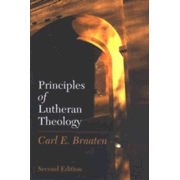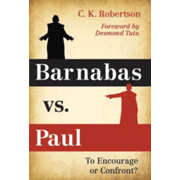WE CONSIDER the gospel lesson for the Seventeenth Sunday after Pentecost. The text challenges those who fail to turn to God when faced with
questions of divine, ultimate authority. Within the gospel reading our Lord
contended with persons who wanted to judge those whom God sends to
call us…
And when he (Jesus) entered the temple,
the chief priests and the elders of the people came up to him as he was
teaching, and said, “By what authority are you doing these things, and
who gave you this authority?”
Jesus answered them, “I also will ask
you a question; and if you tell me the answer, then I also will tell
you by what authority I do these things. The baptism of John, whence was
it? From heaven or from men?”
And they argued with one another,
“If we say, ‘From heaven,’ he will say to us, ‘Why then did you not
believe him?’ But if we say, ‘From men,’ we are afraid of the multitude;
for all hold that John was a prophet.” So they answered Jesus, “We do
not know.”
And he said to them, “Neither will I tell you by what authority I do these things.
“What do you think? A man had two sons; and he went to the first and
said, ‘Son, go and work in the vineyard today.’ And he answered, ‘I will
not’; but afterward he repented and went. And he went to the second and
said the same; and he answered, ‘I go, sir,’ but did not go. Which of
the two did the will of his father?”
They said, “The first.”
Jesus said to them, “Truly, I say to you, the tax collectors and the
harlots go into the kingdom of God before you. For John came to you in
the way of righteousness, and you did not believe him, but the tax
collectors and the harlots believed him; and even when you saw it, you
did not afterward repent and believe him. (Matthew 21:23-33)
 |
Another Gospel? A Lifelong Christian Seeks Truth in Response to Progressive Christianity By Alisa Childers |
Words and Deeds?
The
temple powers asked by what authority did Jesus do the astounding
things that occurred during the final week before his crucifixion.
Jesus, just the day before, had completed a dramatic act during the
cleansing of the temple. He drove merchants from the courtyard. The words and deeds done then by our Lord are recorded by all
of the gospels, and not just by Matthew.
Jesus challenged the
principalities and powers. Therefore a question bubbled up in a heated froth from temple authorities, about whether he was the Messiah.
They wondered with malice it seems, “Was this Jesus the Sent One of
God?” (see Mark 11:27-33, Luke 20:1-8, and also John 2:18-22).
Remember!
Jesus is the man who had entered Jerusalem on a donkey, in the manner
of ancient Hebrew Messianic leadership.
In this text we read that he returned
to the temple courts. Once there, he was confronted again about the
source of his authority. Why was he doing such radical acts? Jesus
answered the question of authority with a question. Using a technique
that goes back to the primal confrontation between Job and God (Job
40:1-14), he challenged them concerning the authority of John the
Baptist. By doing so, he caught them amid a power struggle of their own
making. If they answered that John’s authority was authentic, Jesus
could then ask why they had not listened. If they answered that his
authority was groundless, they would glean the wrath of some people who were
listening, who yet held John in high esteem as a prophet. So they
decided to politically beg ignorance… and Jesus therefore dismissed
their challenge. If they could not answer, he indeed would not.
 |
Principles of Lutheran Theology Second Edition By Carl E. Braaten |
Given
that this lesson appears at length within the context of Matthew’s
church, I consider that we may view that the writer of the gospel is
contending with similar issues. Could the authority of Jesus have been
yet an issue even four decades after the crucifixion? If the listeners
believed the report of the Resurrection, was the Judaic penchant for
establishing hierarchical power and authority harmfully affecting the early Church? We may also consider, "Are we any different?"
Or if some doubted the
Resurrection, was this conversation answering those powers within the synagogue
community who still favored John the Baptist as a peer to Jesus in
stature? Would not this text give them a favorable position
for more theological attack… a power argument against those pesky Christians?
Considering these questions, I believe that since this text is
in evidence across all of the gospel records, both arguments noted here
may have been at work in all early Christian communities. Therefore the challenge existed and had carried over from the earliest Church writings. From
early on then, we have evidence that Jesus' authority was at issue! We read from the
earliest canonical writing within the New Testament, from the pen of
Paul (circa. 45 A.D.)…
Grace to you and peace from
God the Father and our Lord Jesus Christ, who gave himself for our sins
to deliver us from the present evil age, according to the will of our
God and Father; to whom be the glory for ever and ever. Amen.
I am
astonished that you are so quickly deserting him who called you in the
grace of Christ and turning to a different gospel— not that there is
another gospel, but there are some who trouble you and want to pervert
the gospel of Christ.
But even if we, or an angel from heaven, should
preach to you a gospel contrary to that which we preached to you, let
him be accursed. As we have said before, so now I say again, “If anyone
is preaching to you a gospel contrary to that which you received, let
him be accursed. (Galatians 1:3-10)
We see that from the time before the crucifixion, and through the days of the
early Church and continuing even unto this day… the authority of Jesus
has been challenged. Though for Paul the contention was over a different issue, of
circumcision of the Gentiles coming into the Church... the authority issue of Christ was being
laid over against the traditions of the elders. It is thus important that
our lesson today shows that Jesus had declined to answer the immediate challenge,
for the “chief priests and elders of the people” had already declined
to hear the opposing argument in rather stiff-necked fashion in order to maintain their offices. Resistance
thus remained high against Jesus, therefore, throughout the diaspora community of Israel and for
decades and centuries to come.
 |
Politics for Christians: Statecraft as Soulcraft By Francis J. Beckwith |
Proof in the Turning...
Then
taking a creative opportunity for a teaching moment, Matthew described
that Jesus showed the continuity between John and his own mission. The
deeds needed for salvation first called for by John, were being completed
by Jesus. Our Lord thus told the parable of the “Two Sons”. In this
telling we find that our Lord said the proper response to his gospel
message must be measured by the evidence of repentance. However, the
word repentance ( Greek – mεταμέλομαι ) used here indicated a turning by
which one’s mind is irretrievably changed. Herein the Law and the
Gospel respectively first convicts a listener... and then secondly works toward salvation for
those who try to stubbornly remain of unchanged mind.
John had come out of the wilderness and demanded repentance... and those who knew no power, but wished salvation…
would obey wholeheartedly. Seeing Jesus baptized and following him... they would see the kingdom. Those who tried and
yet try to hold on to faint powers in this fallen world do not.
We ask then, "Why are we sinful humans so resistant?" We are reminded that Matthew had just recorded that Jesus taught…
And
Jesus said to his disciples, “Truly, I say to you, it will be hard for a
rich man to enter the kingdom of heaven. Again I tell you, it is easier
for a camel to go through the eye of a needle than for a rich man to
enter the kingdom of God.” When the disciples heard this they were
greatly astonished, saying, “Who then can be saved?” But Jesus looked at
them and said to them, “With men this is impossible, but with God all
things are possible. (Matthew 19:23-26)
We
thus receive the wondrous gospel message given to the disciples. Then, should
not we who realize the poverty of our sin by the witness of the Holy
Spirit, accept this call to repentance? Shouldn't we turn to God and beg
forgiveness?
Click Here To Help Us Deliver This Site!
We freely receive forgiveness and retain eternal
life for sake of Jesus’ death upon the cross. Remaining in the world as
Christians then, we persist in our right work of proclamation
through both Law and Gospel. These are the tasks for those
beloved of God who accept that they shall enter the kingdom, not by their doing, but by
God’s doing!
This is the message of our gospel reading today.
If we look for security in the world by holding vainly to power and
position in either our civil or religious societies, rejecting the
exclusivity of salvation through Christ alone, we do great insult to the
gift of eternal life that our Lord offered upon the cross. When we diminish this gift
by lowering Christian claims of Jesus' power and authority, causing them to rest
among those religions whose adherents strive in works for power and
position, we walk bold-faced in concert with the one who deceives.
 |
Barnabas vs. Paul: To Encourage or Confront? By C.K. Robertson |
As
believers then.., know that we too shall be persecuted for our voicing in
the public or temple court. But also know that we are counted among
those who shall be raised up to be accepted like the first Son. Indeed,
we too shall be numbered among those who hear and obey… and we shall
inherit a place in the kingdom of God. So let be it done as you wish,
gracious Lord God!
Please be invited to watch our video...
May the Lord our God order your steps, now and forevermore!


No comments:
Post a Comment